Based on the best-selling manga by Haro Aso, Alice in Borderland tells the story of Ryohei – an apathetic, video-game-obsessed young man – who suddenly finds himself in a strange, emptied-out version of Tokyo in which he and his friends must compete in a series of dangerous games in order to survive.
Netflix gave us early access to the first four episodes. Here are our first impressions of the series.
Umapagan Ampikaipakan: Full disclosure. I came into Alice in Borderland knowing nothing. I was unfamiliar with the manga. I hadn’t read anything about the series except for a one paragraph synopsis. And I didn’t recognise any of the cast except Kento Yamazaki from last year’s Kingdom. (Not the Netflix one.)
Bahir Yeusuff: Same. I saw the trailer one time and that was it. I didn’t know it was a manga until the end of the second episode when my wife looked it up. But of course it is a manga. This is such a comic book story. There are also hints of other stories in here too, like little hints of Battle Royale and Saw. It really is a fun watch.
UA: On the whole, I really did enjoy these first four episodes. I think coming in blind really helped because there was a genuine sense of discovery. I really loved the way we were introduced to our major players. That sequence before the opening credits of the pilot, with Ryohei leaving his house in a huff while texting his friends, gives us so much great information about who our three main players are. Which was so important given how quickly this thing gets going. I mean, we’re only 10 minutes into the opening episode before everything kicks off. (If this was an American show, we’d have to sit through 45 minutes of blah blah blah before the big reveal. Which is usually utterly pointless given that the reveal is already in the synopsis of the series.)
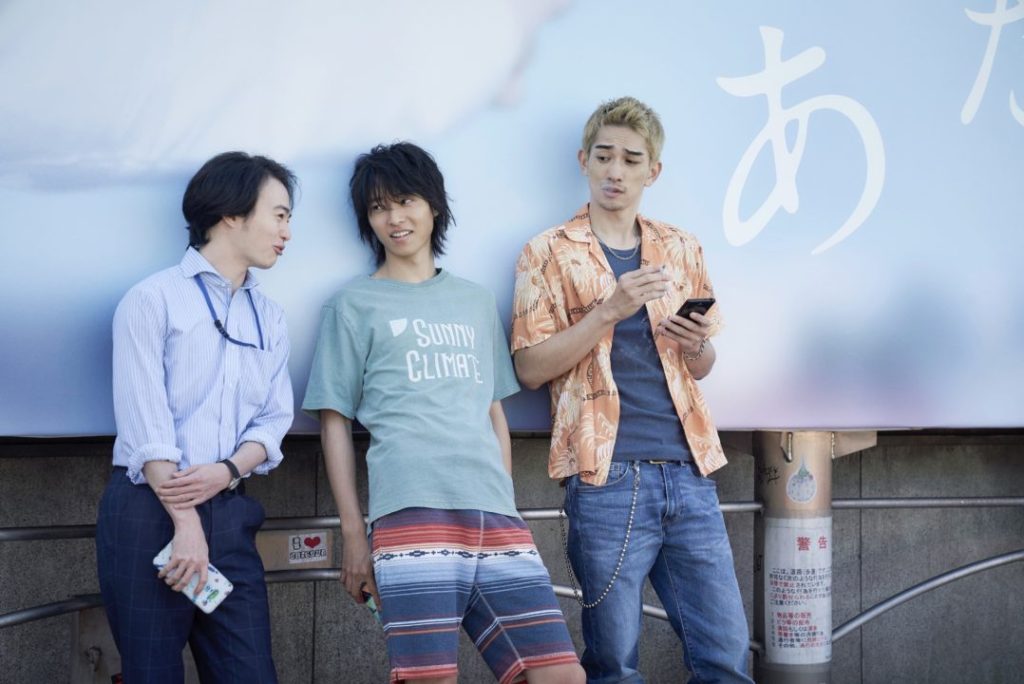
BY: I love that. I loved that there wasn’t half an episode of background, and relationship building, and history, and explorations of inadequacies, and the confronting of personal issues. None of that baggage. You’ll get it when you need it. Right now, you just need to know that these are the three bestest buds in Tokyo. Okay, you got that? Done. You’re in the story.
Also, there is a sequence at the point where “everything kicks off” that is probably the most seamless oner I have ever seen? I mean, it isn’t the most important, or the most impressive, but it was just so effective. I did not see it until right at the end of the shot when I realized that the camera had not cut. It was such a great storytelling device that doesn’t scream, “look at me I’m doing one long shot because I’m so clever.” Thinking back, it reminds me of the oner in the car in Children of Men, which was also very effective in telling its intended story, by creating a mood without drawing attention to itself.
UA: I think that speaks to the quality of the whole production. They make fantastic use of all the spaces they’re in. It’s clever without being showy. God knows I spent most of the first episode trying to figure out how they emptied Shibuya, which is probably the busiest and most recognizable pedestrian crossing in the world. I mean, the series opens with a Vanilla Sky/28 Days Later style sequence, but it seems to go one further in not just creating a sense of solitude and emptiness, but also scale. Tokyo doesn’t just look empty, it feels empty. Which is really quite the feat.
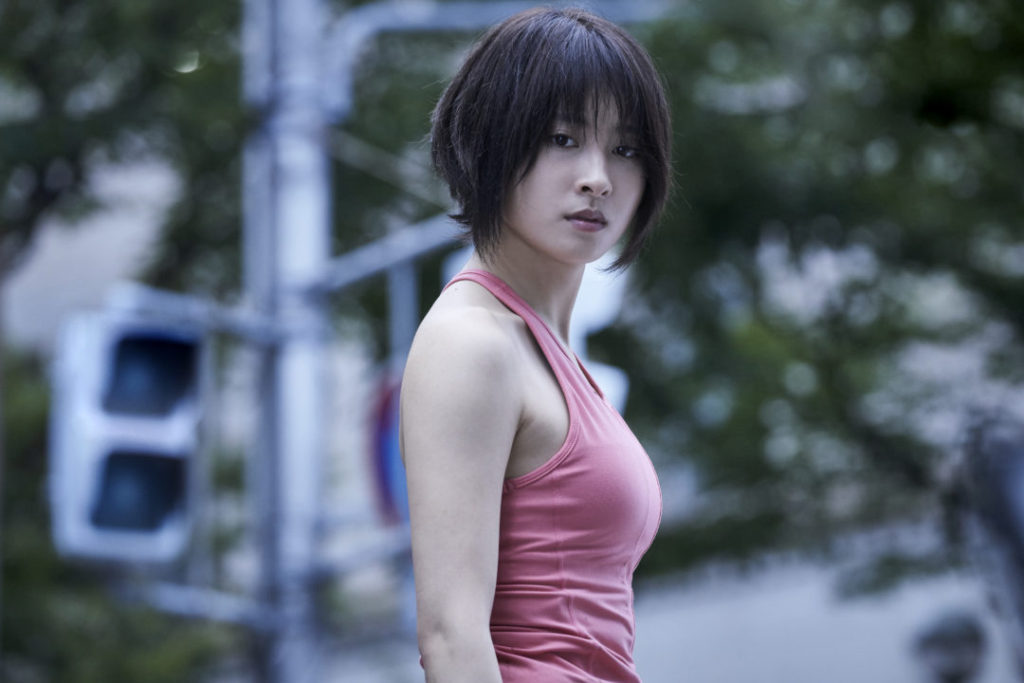
BY: From here we get to the real meat of this series. It doesn’t explain itself but there are essentially these Saw-like games that our three heroes have to overcome. The first challenge is probably the one that most reminded me of Jigsaw. I was a little concerned that the other games would be of that break-out room level, but oh good lord do they take it up a notch.
UA: The story is an old one. We’ve seen versions of this ever since Richard Connell’s short story “The Most Dangerous Game” from 1924. There have been movies, books, comics, even Quibi shorts. And there is good reason why the concept has had such longevity. There is so much potential in the idea of human beings being trapped in some sort of “survival of the fittest” contest. The hunter becomes the hunted. Or, as it is in this case, the first person shooter finds out if he can survive in an actual video game.
With every generation, it feels like the story has taken on a different form and tackled different issues. Back in the 1920s and 1930s it was a morality tale about big game hunting. After that, it became about corporate exploitation and greed. Video games feel like the next logical step. But irrespective of the theme, the one perennial question that all these stories ask is what does it mean to be human?

BY: And also what is humanity? There are moments in these first four episodes that have the participants of these games threatening to sacrifice someone from the group. Now it’s easy when you’re facing your first challenge to say that everyone must survive. But what about when you’re on your third challenge? Or fourth one? When you, as a person, feel like you’re all out of luck and the only way to survive is to have someone else open that fiery door ahead of you.
Alice in Borderland also has an interesting undercurrent running through it as well. Of what life is like in the real world (outside of these challenges). Did you meet your potential or have you wasted it? Have you done things you’re not proud of to get ahead? And if so, how will that drive you? It’s a wonderful piece of storytelling in that the games are not the be all and end all. It’s not The Hunger Games where you win points for your village. As much as the participants are looking to survive, there is always the promise of the “real world” that they hope to get back to. It’s just like life. You don’t win. You just keep facing and overcoming the same games and challenges every day. #Deep
UA: How does that saying go again? “We’re not living life, we’re just surviving it.” Which is a perfect way to describe what this series is trying to say.
Another reason Alice in Borderland works so well is because of how different the “games” actually are. At first, I wasn’t sure if they could keep the momentum going from episode to episode. But they manage to keep things fresh and interesting. By using different games to further develop and grow our four heroes, as well as introduce us to new characters along the way. It never felt repetitive. I was never bored.
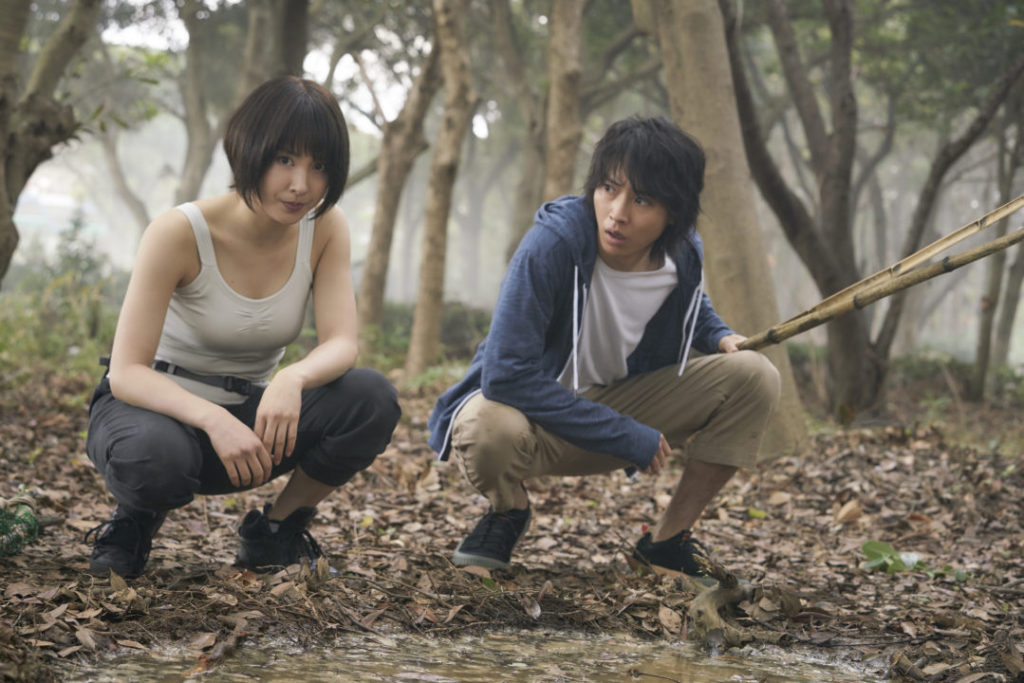
BY: I also love that there are different classes of games, from team games, to strength games, and all of them coded using playing cards. I gasped when I saw a seven of clubs at the beginning of one of the challenges. It was a great way of not only changing up the challenges, but also to provide anticipation for the audience. Overall, I think the series does a lot well, and at the risk of getting a faceful of hate, I’m just gonna say it, I’d love to see an American remake of this.
My biggest gripe with manga, and anime, and a lot of Japanese TV shows, is the way the characters are written and performed. There is always overreaction, there is a whininess, and there is melodrama. All of that just grates me so much. Look, I’ve seen enough Kurasawa films to know that that is just the way they speak, and shout, and empathise with each other. But it really doesn’t agree with me. I’m also not a fan of the way real world characters try to look like anime characters. I know that one guy is based on an a comic book, but does he really need to have silver hair?
UA: I watch a lot of Japanese TV and movies and I barely notice that any more. I just chalk it up to a cultural variance. It’s the same with all of the soft focus and long periods of silent staring in K-Dramas. Or the overacting in Tamil soaps.
I think an American remake would try too hard to explain things to its audience. There is a willingness here to just go with it. There is little to no exposition regarding what’s actually going on, and yet, I am sufficiently intrigued by the narrative to not feel like I’m being shortchanged. I would have no problem not knowing why any of this is happening to them.
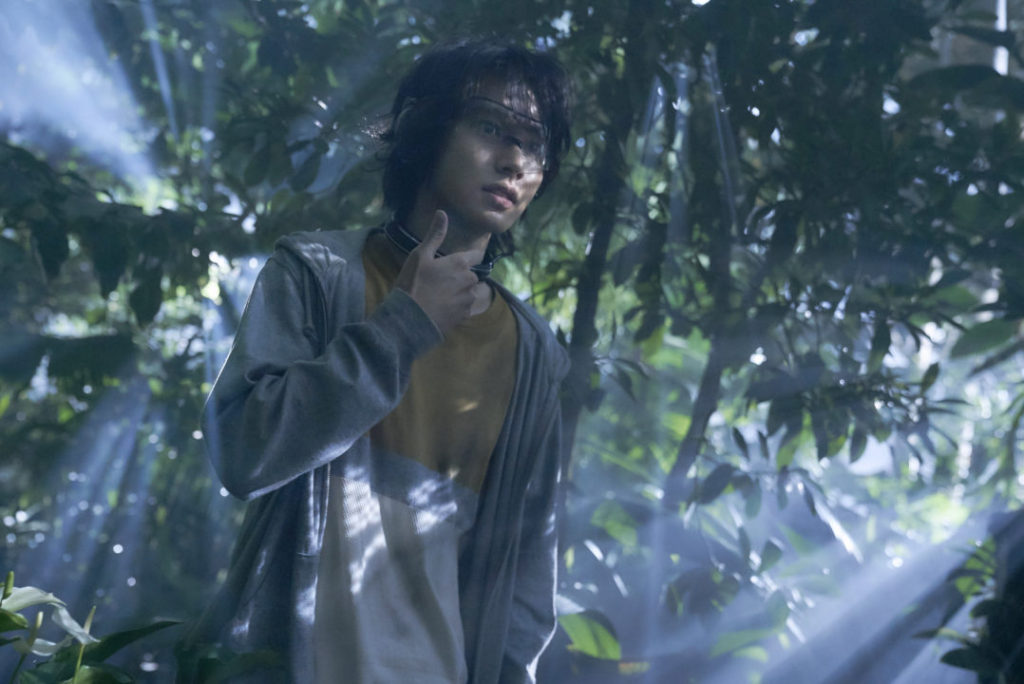
BY: Oh, brilliant idea alert! What if these games were happening all over the world and we just didn’t know about it? What if Netflix pulls a Criminal style world of stories? Hang on let me write this up and email it to someone over there.
Okay, I’m back.
Alice in Borderland has got places it can go. The manga is fairly long running and actually has these side stories where there are games that don’t actually involve any of our protagonists. I think the one thing I’d love to see is how our characters grow from here. At the moment, these games happen in rather quick succession so there really isn’t much time in between, but I’d love to see the backstories of some of the other characters who have been there awhile. You know, the ones that treat it as a regular day of work. How do they deal with the games? How do they recover in between? I think the wider world would make for some really interesting plots.
I just hope it doesn’t turn into The Walking Dead where the team just grows to a point where they all need to sit down and camp out. And then internal drama starts to brew, and blah blah blah. I just want the focus to remain on these games.
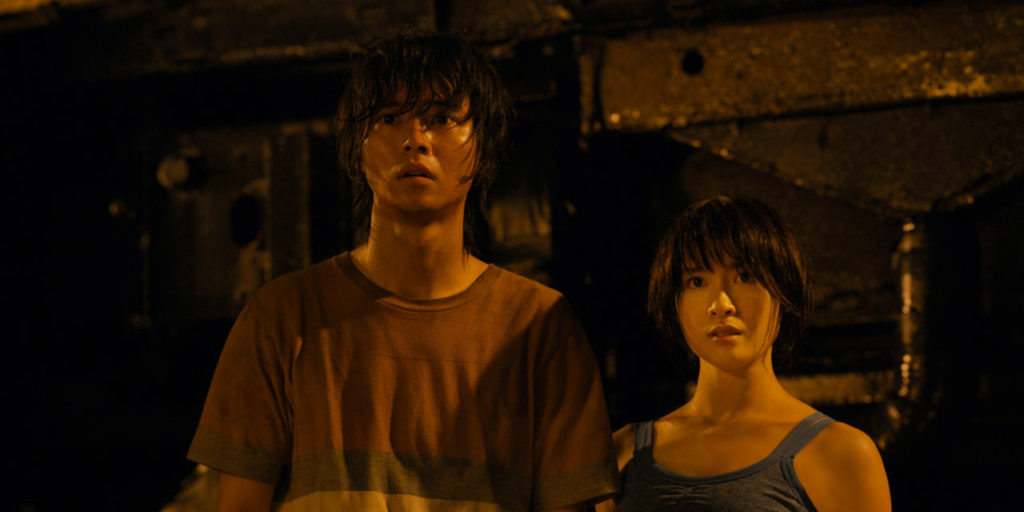
UA: They’re playing with so many sci-fi concepts here. They’re hinting at a virtual reality. They’re playing with time. There’s the whole game master thing. And I’m excited to see how they’re going to bring all of these different threads together.
The Walking Dead is a great example of what not do. So is Lost. I’m not sure how much of a plan the showrunners have for Alice in Borderland (seven seasons and a movie?), but if these four episodes are anything to go by, then count me in for the long haul.
BY: Well, a cursory Google search shows eighteen volumes that ran for several years, with two spinoffs. So maybe that’s a good sign. And yes, despite my whinging earlier, I too am in this for the long haul. This may be the one that finally gets me.
UA: I’m looking up the comic books as we speak.
Alice in Borderland
Netflix, Season 1, 8 episodes
Director: Shinsuke Sato
Writers: Yoshiki Watabe, Yasuko Kuramitsu and Shinsuke Sato
Cast: Kento Yamazaki, Tao Tsuchiya, Nijiro Murakami, Yuki Morinaga, Keita Machida, Ayaka Miyoshi, Dori Sakurada, Aya Asahina, Shuntaro Yanagi, Yutaro Watanabe, Ayame Misaki, Mizuki Yoshida, Tsuyoshi Abe, Nobuaki Kaneko, Sho Aoyagi, and Riisa Naka

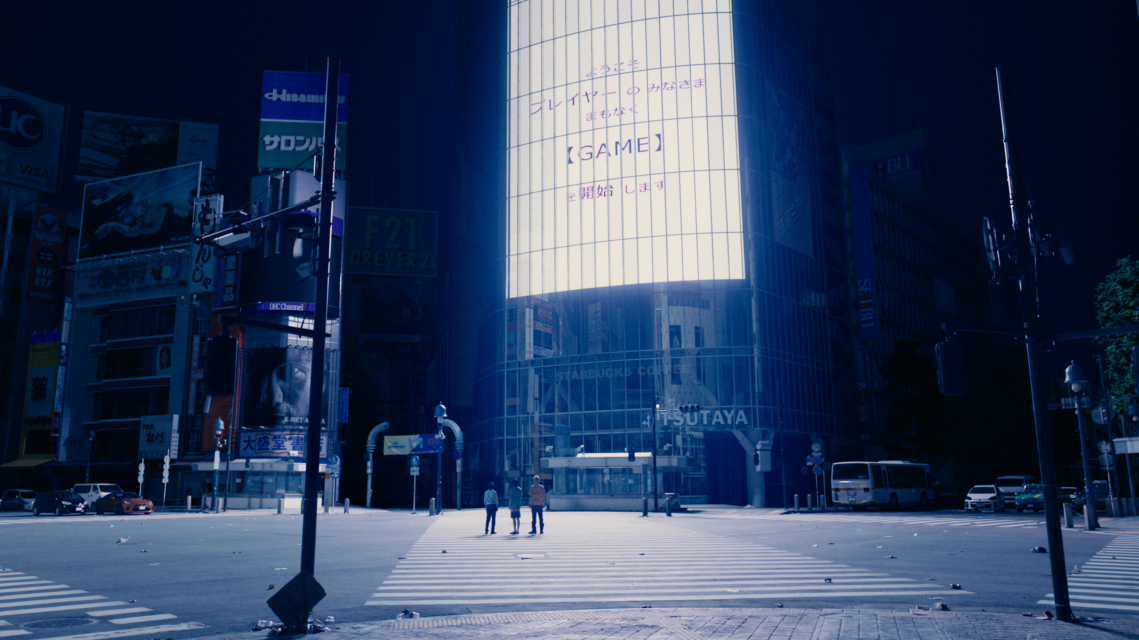
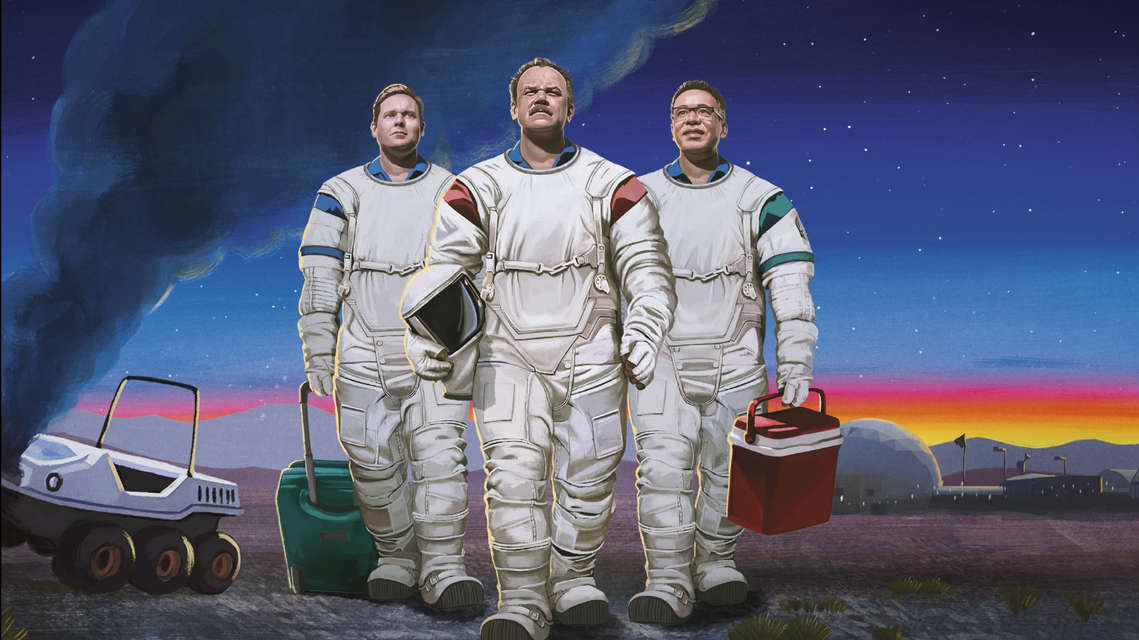
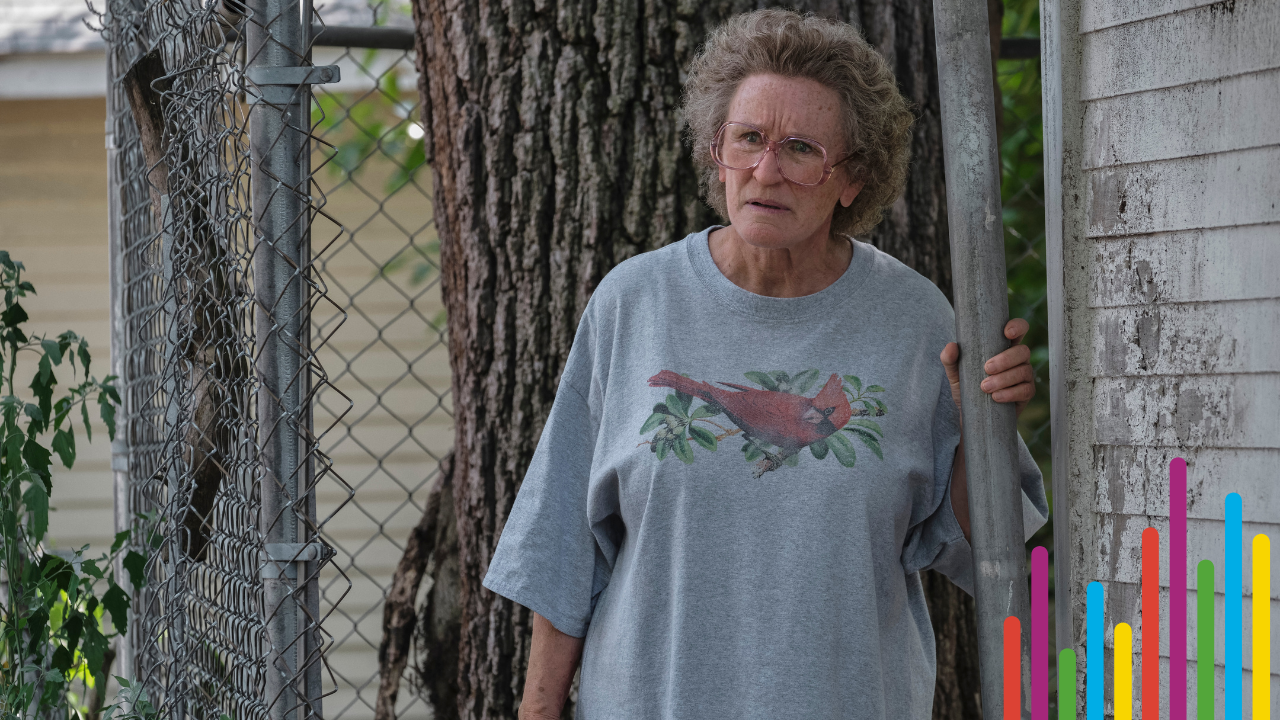
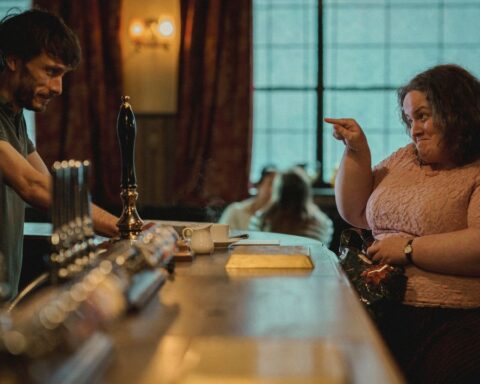
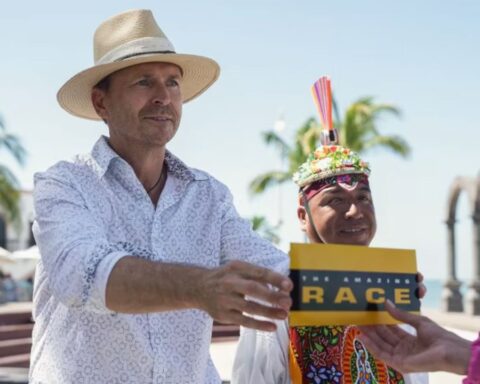
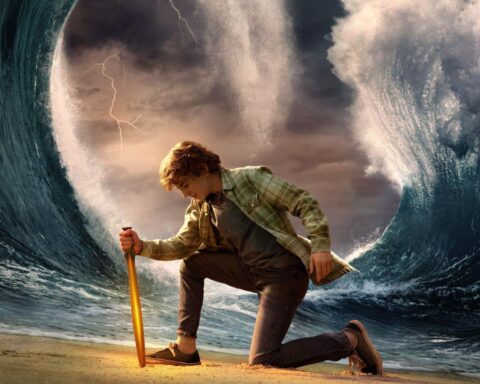

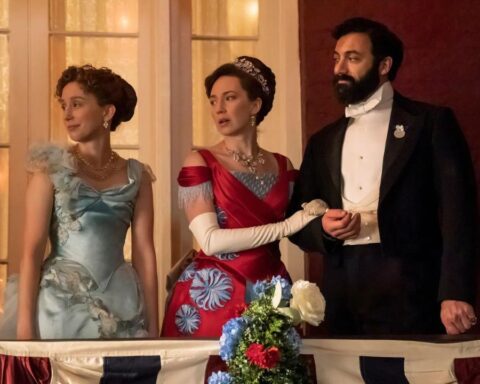
Follow Us